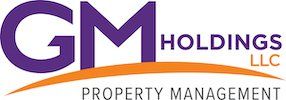Things To Consider Financially When Renting A Home
Depending on your financial situation and a variety of other factors, there are still plenty of reasons why renting a home may be better for you than purchasing.
Unlike homeowners, property renters are not tied down to one area by a 15, 30, or 40-year mortgage term. Also, renters do not have to worry about changing neighborhoods devaluing their own property or raising their taxes to unaffordable levels.
Renting and buying share their own distinct advantages and disadvantages, but with higher levels of student debt than ever before, it’s no wonder why so many young adults see renting their property. If you are one of those prospective renters, here are a few key points you should consider regarding the financial nuances of renting.
Budgeting
While renting is less financially burdensome than buying a home, you’ll still have a decent helping of planning and preparation on your plate.
Before you rent, most landlords or property managers typically want to see at least one of these few factors: proof of steady income, proof of savings in the bank (at least enough to cover a few months rent), and a good credit score at around 620 or above.
If you’re at the point of contemplating renting or buying, you’ll want to do some calculations to estimate and compare how your budget would hold up in either scenario. Resources like this interactive NY Times page or Zillow’s Rent Affordability Calculator are helpful starting points. If you’ve made up your mind, there’s one simple rule of thumb to follow with rent budgeting. To live comfortably, your monthly rent should be around 1/3rd of your monthly income at most. Refer to our Tips For Renting Your First Apartment blog for a more comprehensive breakdown of monthly budgeting.
Fewer and Cheaper Expenditures
As alluded to above, renters have fewer auxiliary expenses to worry about than homeowners. No real estate taxes, no direct maintenance payments/responsibility to maintain, significantly cheaper utilities, significantly cheaper real estate insurance and a significantly cheaper down payment are all advantages of renting. Owning and building equity might seem like a simpler, more straightforward path for building social capital, but research suggests that if you play your cards right, renting and investing together can actually outperform home ownership in wealth generation.
Furthermore, many apartment renters are able to enjoy additional amenities with very little additional cost. A lot of strenuous labor, time, and money can go into setting up and maintaining a pool, fitness equipment, or utilities such as a washer and dryer or dishwasher. By having someone else (e.g. landlord/property management firm) cover the expense and maintenance of those amenities, it mitigates your financial burden and saves you time.
Upgrade or Downsize
One of the biggest perks of renting is the flexibility it gives tenants with their finances. If they don’t like the property or the location, they aren’t bound to stay there by any long-term mortgage commitment or obligations beyond their lease.
Renting may be a safer option for those worried about abrupt life changes involving their finances, whether that be a major setback in a career major medical expenses or other untimely circumstances.
Fortunately, with rent, residents have more flexibility and freedom to downsize to a cheaper property when their lease expires. Ergo, if an individual’s financial situation and life is improving, they have the flexibility and freedom to conveniently upgrade to a higher-end residential property within their wider budget. With a shorter term commitment, they aren’t constrained and committed to settling most of their lives in one home.
At the end of the day, renting vs ownership is a matter of buyer’s budget and needs. Understandably, a lot of people may not want to put up with the hassle of constantly moving around, and rightfully, a lot of people may not want to put up with the hassle of such a huge investment. If you have any questions about our own properties and current listings, please contact us.





